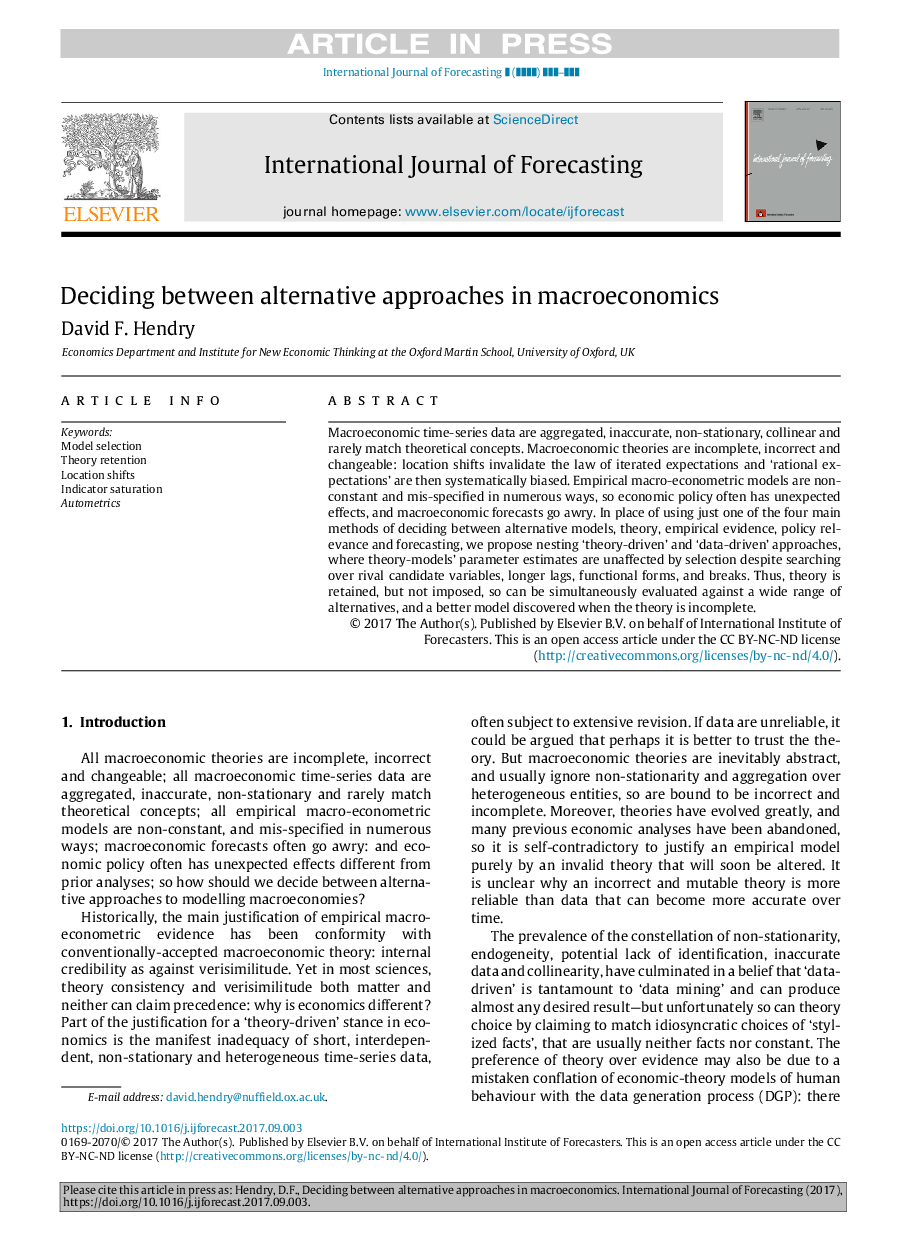| Article ID | Journal | Published Year | Pages | File Type |
|---|---|---|---|---|
| 7408128 | International Journal of Forecasting | 2018 | 17 Pages |
Abstract
Macroeconomic time-series data are aggregated, inaccurate, non-stationary, collinear and rarely match theoretical concepts. Macroeconomic theories are incomplete, incorrect and changeable: location shifts invalidate the law of iterated expectations and 'rational expectations' are then systematically biased. Empirical macro-econometric models are non-constant and mis-specified in numerous ways, so economic policy often has unexpected effects, and macroeconomic forecasts go awry. In place of using just one of the four main methods of deciding between alternative models, theory, empirical evidence, policy relevance and forecasting, we propose nesting 'theory-driven' and 'data-driven' approaches, where theory-models' parameter estimates are unaffected by selection despite searching over rival candidate variables, longer lags, functional forms, and breaks. Thus, theory is retained, but not imposed, so can be simultaneously evaluated against a wide range of alternatives, and a better model discovered when the theory is incomplete.
Keywords
Related Topics
Social Sciences and Humanities
Business, Management and Accounting
Business and International Management
Authors
David F. Hendry,
